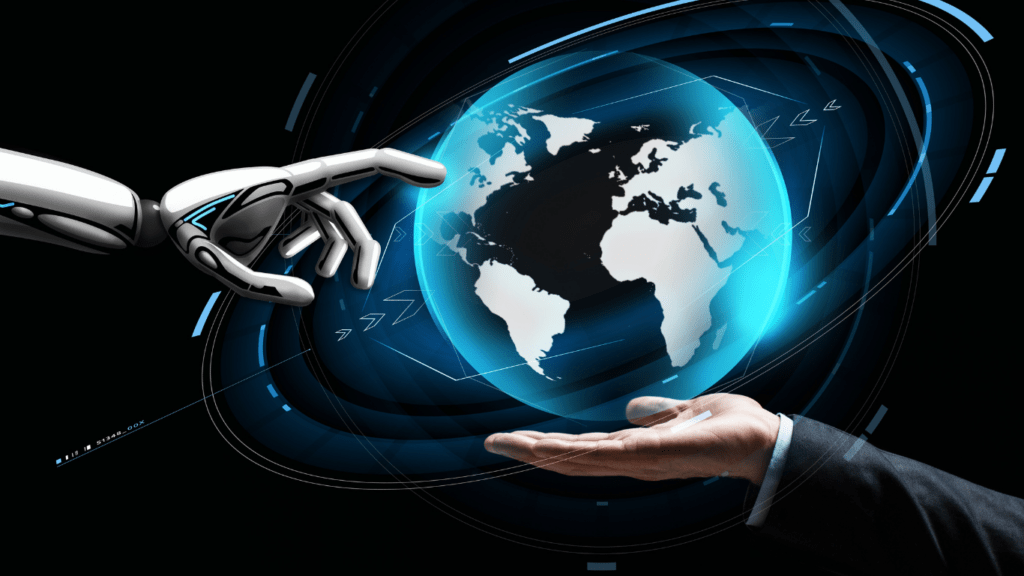Understanding The Data-Driven Betting Arena
The data-driven betting arena thrives on the analysis of vast datasets to make informed decisions. Advanced statistical models and algorithms process historical and real-time data, uncovering trends and probabilities that guide betting strategies. Machine learning enhances this by recognizing patterns humans may overlook.
Human expertise historically dominated betting, relying on intuition, experience, and contextual judgment. However, the integration of AI has shifted the focus to accuracy and speed. Data sources like player stats, game conditions, and historical performance records contribute to predictions. AI uses this information to simulate scenarios and calculate odds.
Betting in this arena prioritizes precision. AI’s ability to process complex inputs surpasses manual calculation, offering real-time insights. Yet, humans excel in understanding emotional and psychological variables, such as player fatigue or team morale, which algorithms often undervalue. Balancing these strengths defines the evolution of data-driven betting.
The Rise Of AI In Betting
AI is transforming the betting industry by automating predictions and delivering unparalleled accuracy through advanced analytics. This shift empowers stakeholders to make data-backed decisions while redefining the competitive dynamics of the field.
Key Technologies Driving AI Betting
Machine learning, neural networks, and natural language processing (NLP) shape AI’s role in betting. Machine learning algorithms analyze historical data and adapt patterns, identifying new trends as conditions evolve. Neural networks mimic human decision-making, allowing simulations to process complex inputs like real-time player stats or weather impacts. NLP tools extract insights from unstructured data, such as news or social media, enriching prediction quality.
Data integration platforms enhance these technologies by aggregating inputs from multiple sources, like sports analytics databases and live match feeds. Cloud computing supports this infrastructure, ensuring scalability and rapid computation. Predictive analytics models simulate outcomes, optimizing factors like odds calculations.
Benefits And Limitations Of AI
AI delivers speed, scalability, and precision. By analyzing vast datasets in seconds, it generates insights that would take humans hours or days, boosting betting efficiency. AI’s objectivity eliminates biases, creating consistent forecasts based purely on data trends. Real-time updates keep predictions relevant as situations change.
However, AI struggles with contextual judgment. Emotional variables like unexpected injuries or player motivation escape algorithmic analysis. Dependency on quantitative data limits adaptability in scenarios lacking comprehensive information. Over-reliance on AI tools can also obscure nuanced strategies that only human intuition provides, challenging its supremacy.
Human Intelligence And Betting Strategies

Human intelligence brings unique advantages to:
- betting strategies
- focusing on intuition
- adaptability,
- contextual understanding
While data drives decisions, the human ability to interpret emotional and psychological variables remains unmatched.
Strengths Of Human Decision-Making
- Emotional Understanding: Humans excel in assessing emotional factors like team morale and player fatigue, which algorithms often undervalue. For example, a bettor might gauge a player’s performance dip due to personal challenges.
- Contextual Judgment: I can assess unstructured variables, such as unexpected weather conditions or off-field controversies, and adapt strategies accordingly. These nuances complement statistical data to deliver a comprehensive decision-making approach.
- Dynamic Thinking: Unlike algorithms, humans process new information and adjust strategies instantly, even when facing unforeseen circumstances. A bettor might revise decisions after observing a team’s unexpected change in play style mid-game.
- Experience-Based Intuition: Seasoned investors rely on patterns and instincts formed through years of experience, identifying opportunities algorithms might miss due to rigid programming.
Common Pitfalls In Human Betting
- Cognitive Biases: Emotionally charged decisions, like chasing losses or over-relying on favorites, undermine rational analysis. For instance, a bettor might overestimate a team’s chance of success out of loyalty or bias.
- Overconfidence: I could sometimes overvalue my knowledge or past successes, leading to impulsive risks without thorough evaluation. This approach overlooks essential statistical elements.
- Limited Data Processing: Humans struggle to process vast data sets efficiently compared to AI. A bettor might overlook secondary player stats, focusing solely on headline metrics.
- Subjectivity: Personal preferences or attachments can cloud judgment. For example, favoring high-profile players while ignoring emerging talent impacts decision quality in the long term.
Comparing AI And Human Performance
AI and human capabilities vary significantly in the context of data-driven betting. Each showcases distinct strengths and weaknesses across critical metrics like accuracy, speed, adaptability, and creativity.
Accuracy And Speed
AI demonstrates unparalleled accuracy when processing vast datasets. Machine learning models analyze historical trends, real-time data, and probabilities to predict outcomes efficiently. For example, AI systems can evaluate thousands of player stats and game-day conditions simultaneously, delivering instant predictions.
Humans, while slower, rely on intuition and experience for their decision-making. Though manual, this approach sometimes uncovers insights AI might miss, like sudden changes in player behavior. However, limitations in processing speed and data volume place humans at a disadvantage compared to AI systems.
Adaptability And Creativity
Humans excel in adaptability, especially under dynamic or unforeseen conditions. For instance, bettors may adjust strategies based on emotional shifts, such as a team’s morale after a game loss. Creativity enables humans to interpret non-quantifiable factors like psychological pressure or external controversies.
AI, while systematically advanced, adapts only within its programming scope. Machine learning models perform well in identifying patterns and retraining with new data. However, they lack the creative edge to assess unstructured variables, making humans indispensable in situations lacking clear data inputs.













































































































































































































































































































































































































































































































































































































































































































































































































































































































































































































































































































































































































































































































































































































































































































































































































































































































































































































































































































































































































































































 Archer Loftus-Hills played a pivotal role in shaping the technical backbone of Gamble Today Smart. With a keen eye for detail and a passion for innovation, Archer was instrumental in developing the platform’s data-driven tools and analytics features. His expertise ensured that users could access reliable, real-time insights to make informed gambling decisions. Archer’s dedication to precision and functionality has left a lasting impact on the platform’s success.
Archer Loftus-Hills played a pivotal role in shaping the technical backbone of Gamble Today Smart. With a keen eye for detail and a passion for innovation, Archer was instrumental in developing the platform’s data-driven tools and analytics features. His expertise ensured that users could access reliable, real-time insights to make informed gambling decisions. Archer’s dedication to precision and functionality has left a lasting impact on the platform’s success.